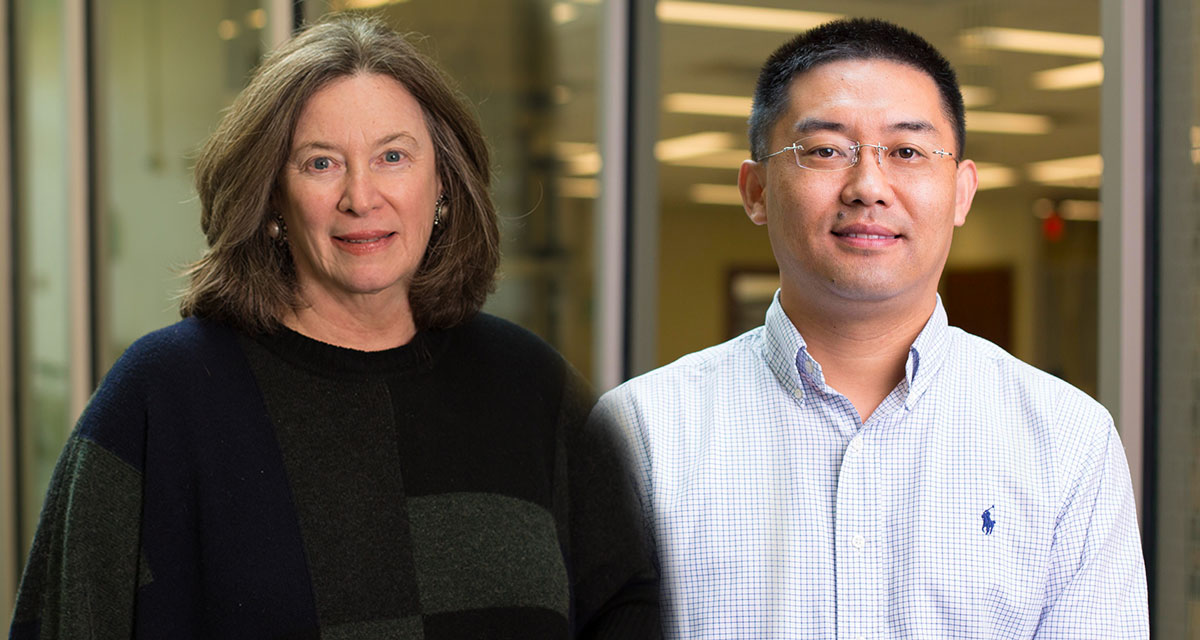Technologies for 3D-printed orthopaedic implants that promote bone formation and filters that produce their own bacteria-killing agents received 2019 Commonwealth Research Commercialization Fund (CRCF) awards. Both research efforts are led by investigators from the VCU College of Engineering. The CRCF accelerates economic growth in Virginia by supporting innovative technology research, development and commercialization that addresses important state, regional and national problems.
Success of orthopaedic implants is a major concern for patients with risk factors such as age, diabetes or smoking due to poor bone formation, both during immediate healing and later when the bone matures. Implant stability for all patients requires long term bone formation, but events that occur in the first days after implant placement can impact success, particularly in conditions that affect the immune system or the availability of stem cells involved in wound healing.
Barbara D. Boyan, Ph.D., the Alice T. and William H. Goodwin, Jr. Dean of the VCU College of Engineering, in partnership with the Commonwealth Center for Advanced Manufacturing, is developing a process to improve the stability and longevity of 3D-printed orthopaedic implants. By modifying manufacturing parameters and post-manufacturing protocols, they aim to produce patient-specific, 3D-printed implants with surface properties that stimulate bone formation and whose mechanical designs are more resilient than current models. In addition to meeting clinical needs, this project will advance knowledge of how cells interact with materials and how surface design impacts cell differentiation.
“Our findings have been used by industry to produce machined implants for orthopaedic and dental applications that promote bone formation and long-term stability. The ability to design patient-specific implants, which advanced manufacturing makes possible, will allow us to provide patients with implants that will be tailored to their particular anatomy and healthcare needs,” Boyan said.
Heating, ventilation, and air conditioning (HVAC) systems are designed to improve indoor air quality. Their filters, however, often accumulate bacteria, many of which are infectious pathogens. When released into the filtered air, these pathogens form bioaerosols that can transmit diseases.
Weining Wang, Ph.D., assistant professor in VCU’s Department of Mechanical and Nuclear Engineering, is developing a cost-efficient antimicrobial HVAC filter that effectively kills airborne pathogens. The filter is made by inducing growth of iron oxide nanowires on commercially available iron mesh. When these nanowires receive a low direct voltage they produce a strong oxidant capable of killing most pathogens. The electrical fields at the tips of these nanowires also produce Joule heating and electroporation effects to further contribute to deactivation of pathogens.
Ping Xu, Ph.D., professor in the VCU School of Dentistry, is a co-PI on this project. Xu helped with bioaerosol analysis and will continue to collaborate in the CRCF project to further understand the airborne pathogen inactivation mechanism by the nanowire filter.
“We spend almost 90 percent of our time indoors, but concentrations of many indoor air pollutants are often much higher than outdoor ones. Our antimicrobial air filter is efficient, robust, cost-effective and able to capture and kill pathogens rapidly. The CRCF award will accelerate the commercialization of this technology and benefit the health of the residents of the Commonwealth of Virginia and beyond,” Wang said.
